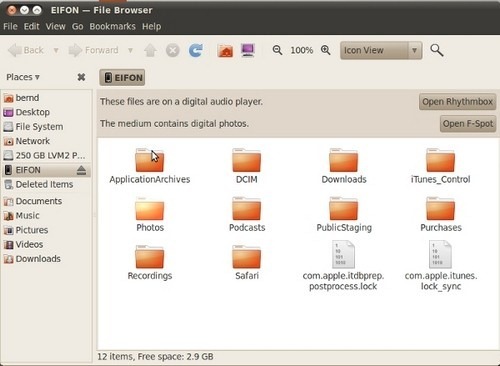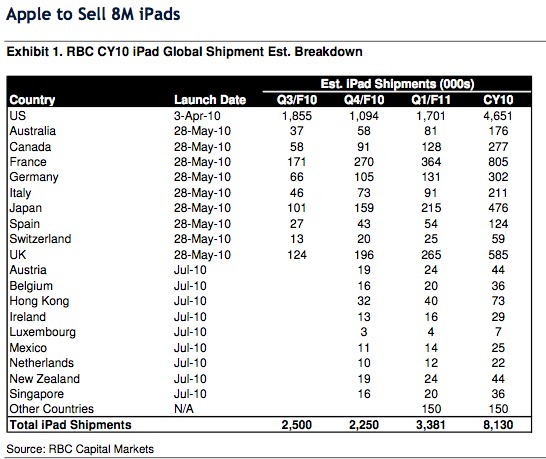It would seem that May 26, 2010 will be forever considered a day of joy for Apple fans. Many see this day as the time when Apple was able to overtake Microsoft, when the underdog finally bested the incumbent. Late in the afternoon, the market capitalization of Apple (AAPL) crept ever so slightly past Microsoft (MSFT), and set off a celebratory tsunami of blog posts, tweets, Facebook statuses, and obligatory internet forum flame wars. It was almost like Apple fans thought they ‘defeated’ Microsoft in some way. And maybe they did. Market capitalization is a very common and practical tool for evaluating the market worth of a company, both for its ease of use and its ability to quickly give a snapshot the attitude of investors about a company. Specifically, market capitalization is the price of a company’s share multiplied by its total outstanding shares. This allows for the size of a company to be factored into the determination of its value, rather than just the share price alone (Google may have a much higher stock price than, say, Wal-Mart, but that doesn’t say anything about the value of the company in and of itself, due to the sheer size of Wal-Mart). Apple’s stock price has been higher than Microsoft for quite some now, and the reason why that alone didn’t cause as much reaction is because just comparing stock prices doesn’t take into account Microsoft’s size. It’s more important that Apple’s market cap rose above Microsoft, because it’s a more comprehensive evaluation of investment worth. It means that even though Apple is a smaller company, with a much smaller market share and product base, investors still see Apple as a company worth investing in more than Microsoft.
The amount of hype this particular piece of news is generating boggles my mind. Considering the huge consecutive successes Apple has experienced since Jobs retook the throne, which drove market confidence up and up again and again, the fact that Apple became an investor’s gold mine is not surprising in the least. When a company releases an iPod, an iPhone, and then an iPad, each taking the retail market by storm and consuming almost miraculous amounts of market share in their respective segments, financial forecasts will skyrocket. Despite all the controversy surrounding their behavior in certain areas of market etiquette and established wisdom surrounding open-source ideas and policies, Apple has consistently released products that people love. They’ve made product releases an art and a science, and it’s a symphony of beautiful music to investors’ ears. Apple is completely deserving of the accolades, and I wouldn’t dare take the credit away. What I don’t understand is how this has anything to do with Microsoft.
For a long time, it was Apple vs. Microsoft, Jobs vs. Gates, Windows vs. Mac OS, and PC vs. Macintosh. Microsoft made an OS, and it was very successful; Apple made an OS, it tried to compete, and generally failed in the market. In those heady days of old, both companies were software companies. Now, not so much. Apple’s return to the limelight after a few years in exile under a different CEO was marked by the release of a mobile digital music player. While OS X was a huge step in the right direction as far as mainstreaming the OS, nothing brought in revenue and visibility like the iPod. The iPod is one of those rare products that are so pervasive in the consumer market that even music devices that aren’t iPods are called iPods by many people (Think Kleenex, Nerf guns, Band Aids, or “I’ll Google that”). On the heels of the iPod and its various critically acclaimed upgrades came the iPhone, pushing Apple further into dominance in the mobile device market. In fact, Apple COO Tim Cook believes that Apple should be seen as a mobile device company. Following the one-two punch of the iPod and iPhone, the iPad is released, once more dominating the market and selling its first million in less than a month.
While Apple was busy reinventing itself as the mobile device company everyone wanted to emulate, Microsoft took its utter and total domination of the OS market and entrenched itself in the enterprise world. While everyone can agree that Windows Vista was a failure on many counts, and possibly one of the key factors behind the decline of their market cap and overall financial performance, businesses, where the bulk of computing happens, just stuck with XP and waited out the storm. Windows Server 2003 and all its numerous and varied enterprise management tools is what IT professionals use, period. There is no viable substitute for Active Directory, and there is nothing on the horizon that is even thinking about invading that territory. Windows Server 2008 is becoming very popular in the enterprise, especially for its virtualization capabilities, and it’s a matter of time (and a service pack or two) before Windows 7 takes the place of XP as the leading corporate OS. The world’s businesses run on Windows, and that’s where Microsoft has succeeded more than anywhere else. Just the opposite of Apple, every piece of hardware Microsoft puts out seems to be doomed to market failure, and the Zune and Kin platforms are perfect examples of that.
You see, we’re comparing apples and oranges (pun definitely intended). The symbolic accomplishment of Apple achieving a higher market cap than Microsoft is fueled by memories of the war that these two technology visionaries once fought long ago. While Mac OS market share is growing, it isn’t even close to becoming a threat to the Windows platform, and Apple understands that. The fact that the Apple has ascended to a cool 2nd place in the US market capitalization standings is big deal. The fact that they beat Microsoft doesn’t mean anything in the context of Apple winning the old OS wars.
Apple’s market cap conquest will be thrown around for a while as ammunition for the biggest tech flame war of our time. It will be a buzzword in Internet forums when Apple fans want to prove their superiority over Microsoft. It’s a misplaced victory, however, and the fans should be celebrating the fact that their market cap is 2nd in the country, period. Spinning the victory as a defeat to Microsoft only weakens the real meaning behind the success, and completely misinterprets the perceived competition between Microsoft and Apple.













